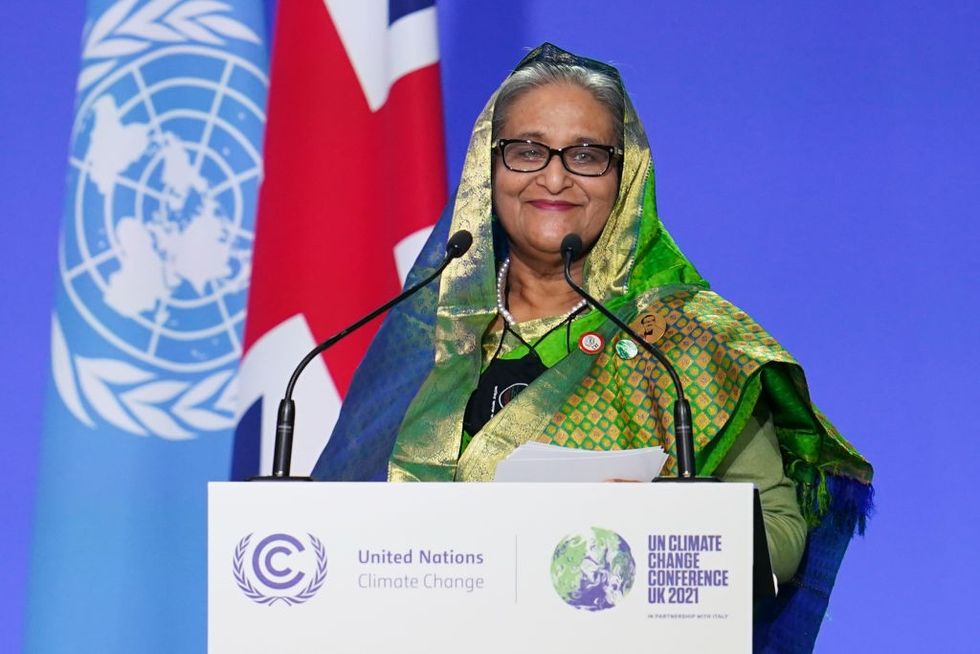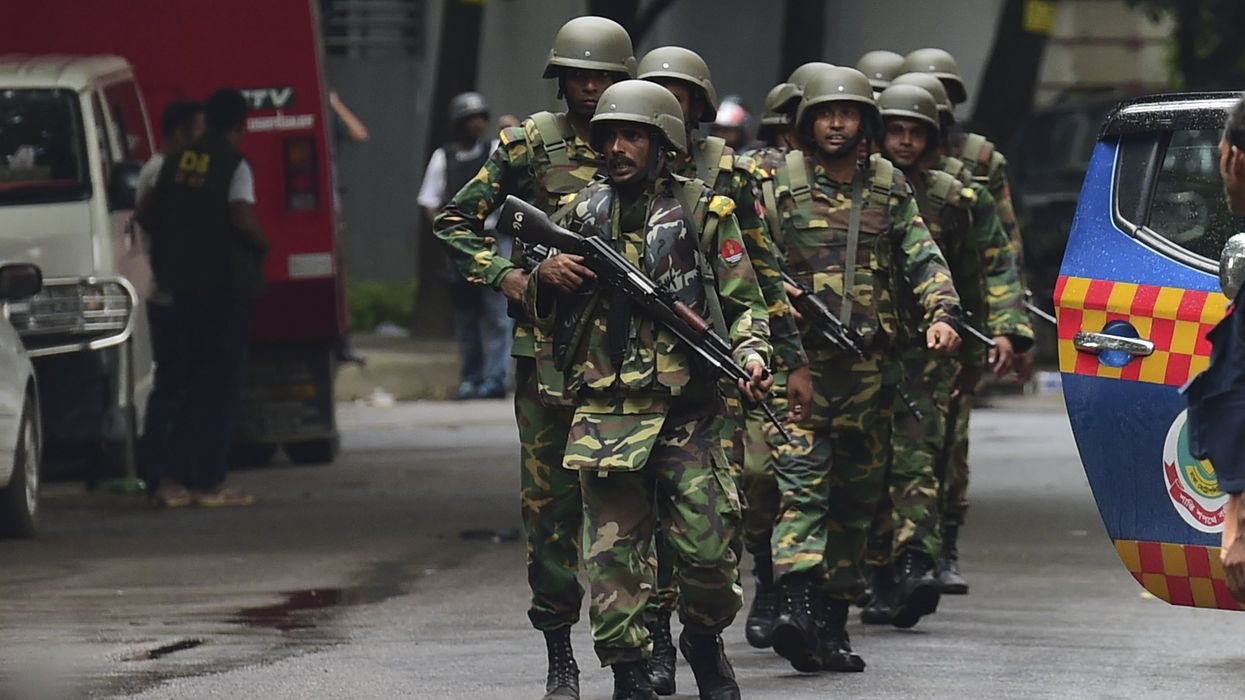From Russia to North Korea to Zimbabwe, the impact of diplomatic sanctions has long been questioned. But Bangladeshi activists have no doubts: extrajudicial killings have suddenly stopped since punitive US measures were imposed two months ago, they say.
Around 2,500 Bangladeshis have allegedly been killed by security forces since prime minister Sheikh Hasina came to power in 2009, according to rights group Odhikar, which maintains detailed records, with hundreds more enforced disappearances.

It has tallied nearly 1,200 such deaths in the last four years, or an average of 25 per month.
But since Washington on December 10 imposed sweeping Magnitsky Act sanctions against the Rapid Action Battalion (RAB) elite security force including seven of its top officers, killings have totalled zero, it says.
"I wish this sanction was slapped a lot earlier," said Afroza Islam Akhi, whose brother vanished eight years ago. "A lot of lives would have been saved."
Akhi is now a coordinator for Mayer Daak, which represents hundreds of families of victims of enforced disappearances and extrajudicial killings.
The RAB was set up in 2004 to tackle Marxist insurgents and Islamist extremism as well as curb human trafficking -- goals it pursued mercilessly and officials say effectively.
More recently its targets have largely been alleged criminals and drug dealers, with authorities insisting that deaths have only occurred during exchanges of fire in legitimate law enforcement operations.
But critics say political opponents have also died at the hands of security forces and that gunfights are staged to deny the victims due legal process.
Akhi's brother Sajedul Islam Suman was among at least 18 activists with the main opposition Bangladesh Nationalist Party (BNP) allegedly picked up by RAB officers in December 2013 in the run-up to national elections.
"My mother went to the RAB headquarters every day for more than a year as we heard RAB officers detained him," Akhi told AFP. "But he never returned."
- 'Every bone broken' -
Nur Khan Liton, head of Bangladesh's top rights group Ain O Salish Kendra, said the US sanctions have directly improved the country's rights situation.
"People are happy with it and many have started speaking out," he said.
According to activists, almost all victims of extrajudicial killings are detained and then shot dead.
Rita Begum last saw her 14-year-old son Rakib Howlader handcuffed and detained at a police station in old Dhaka in 2018.
The next day her father told her the boy -- accused of peddling drugs -- had been beaten to death and then shot to make it appear he had died in an exchange of fire.
"Every bone in his body was broken and then he was shot," she told AFP. "I didn't get justice."
When she tried to file a complaint, she said, "police came to my house. They held a pistol to my head and made me sign a lot of papers. They even threatened to rape my daughter.
"I want the American sanctions to prevail," she added.
"I don't want to see any more mothers losing their children. I don't want anybody else to suffer my fate. I lost my gem of a boy."
- 'Nervous about the future' -
In some cases RAB officers have been prosecuted, with at least 26 people including an RAB commander sentenced to death for seven murders in the central city of Narayanganj in April 2014.
Dhaka and Washington normally have warm relations, co-operating on security issues and with Bangladesh often voting alongside the United States at the United Nations.
The sanctions include asset freezes and visa bans and were imposed on the RAB and current or former RAB officials, including its ex-head Benazir Ahmed, now the national chief of police.
The move -- at a time when China is pouring investment into one of Asia's poorest countries -- stunned Dhaka, with the foreign secretary summoning the US ambassador to convey "discontent".
But the sanctions constitute a "tactical strike" on the understanding between the security forces and ruling party and "put the whole security establishment under renewed international scrutiny", said Sydney-based Bangladesh researcher Mubashar Hasan.
They have also raised anxiety among Bangladeshi officials for whom the West is a popular retirement and training destination, he added.
He pointed out that the Biden administration has begun to target businesses connected to governments that it says suppress human rights, such as China.
"Many Bangladeshi businessmen tied with the ruling party are nervous about the future," he said.
There was no response to repeated requests by AFP to the RAB and the national police for comment.
Dhaka denies its officers are involved in extrajudicial killings or enforced disappearances.
But Shahab Enam Khan, a professor at Jahangirnagar University, said: "Sanction from the US on the law enforcement agencies or personnel is a lesson and perhaps nobody wants it to be repeated."




